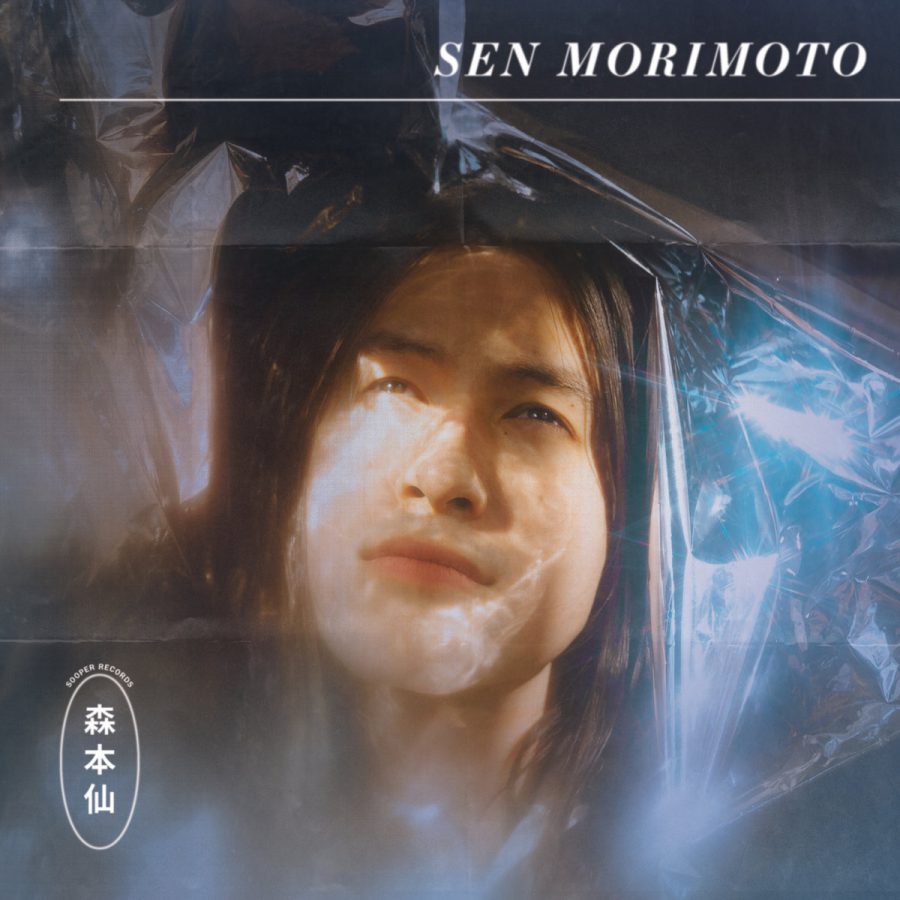Sen Morimoto lets sax rest this time round in new self-titled album
The Chicago multi-instrumentalist puts on impressive show of emotion in new double record.
Sen Morimoto’s self-titled sophomore studio release is a masterclass in calculated and streamlined sound. Released on Oct. 23, the 15 song record opens the book of Morimoto’s life, and richly develops each song into a cosmic, confident collection of music.
Morimoto, a staple of Chicago’s indie music scene, is a classically trained saxophonist and multi-instrumentalist (“I learned saxophone from the legendary Charles Neville. Then I taught myself all the other instruments,” he writes in his short but sweet bio on Spotify). The jazz-rap artist also co-owns Sooper Records, a small record label on which he and other artists are signed, such as NNAMDÏ (who also co-owns the label), Luke Titus and KAINA.
The record is deeply reflective and emotional, and songs like “Jupiter,” “Goosebumps” and “Love, Money Pt. 2” explore his childhood in Massachusetts and his birthplace of Kyoto. Throughout this album, you feel the weight lifted off of Morimoto’s chest, hanging in pillowy and softly toned instrumentals. He lays all his cards out on the table, then challenges you to look at yourself and how you feel in “Deep Down” (“Deep down, what have you found? You don’t have to tell me, it doesn’t need to be profound”).
The album opens with an aggressive, yet beautiful saxophone melody in “Love, Money Pt. 2,” and his saxophone chops are featured at the end of the record on “Jupiter.” More subtle and underlying sax is also on “Woof” and is used in a nice accented way that rises out of the distorted 12-string guitar riff. The tone and harmonies Morimoto serves up are one of his greatest strengths, but it’s something you can only wish you got more of. On his first release, Cannonball!, his sax was featured more often in those nine songs. But the confidence he shows in all other aspects of his music keep you from wishing for too long.
Being confident in his music is very valuable as he is an experimental artist, making a somewhat experimental record. Something you need when listening to such original and creative art is a helping and guiding hand when traversing the sometimes-rocky road. Morimoto reaches out his hand and walks you through his creation in a comforting context, as if in an open house –– “here are my thoughts, my emotions… take your time.”
Five out of 15 songs have features –– seven artists in total –– and as in any good collaboration, each artist is given their time and space to wow you. Standout performances include Qari on “Tastes Like It Smells,” NNAMDÏ on “Wrecked” and KAINA on “Butterflies.”
Along with his sax chops, Morimoto’s vocals leave you with a taste of a belting and beautiful showman singing the chorus in “Wrecked.” The drama in that vocal performance again leaves us wishing for more, and we ponder the possibilities as it waves goodbye too soon. Speaking of “Wrecked,” the always-incredible NNAMDÏ shines in his feature, and as co-owners of the record label, the collaboration of Morimoto and NNAMDÏ gives off such radiant energy of two friends working together on something they’re passionate about, and that’s always a delight.
“Wrecked” is followed by “Goosebumps,” which has a chorus of heart wrenching words that are painfully familiar to some during this pandemic (“Telephone up to my ear, someone I might never see again”). The emotional openness that Morimoto provides on this album is both surprising and so powerful that for the minute after the last song ended, I just sat there for a minute in a kind of shock –– or inability to move –– as if my heart had to catch up with my ears, and I had time to realize how much of his emotion went into each song.
Morimoto has created a fully developed and thought through album. It’s impressive that within 15 songs, Morimoto doesn’t come out with a fragmented or short/cut-off song, rather following through on each one to maximize the effect of every piece. Morimoto has obviously taken the time to contemplate each song critically in order to purvey the feeling of a methodical and consistent project.
The album’s instrumentals create a feeling of composure. Even if the song goes into uncharted territory –– on more experimental songs like “Daytime But Darker” and “Nothing Isn’t Very Cool” –– Morimoto keeps a sense of, again, coherence. More chaotic and incoherent instrumentals could possibly give more effect to the chaotic lyrics of Moriomoto’s emotions –– which get murky and complex –– but keeping composed instrumentals (the “appearance” aspect of the music) puts an emphasis on the dueling worlds of mental state and composure.
The last track, “Jupiter,” is like most of the album production-wise: noticeably labored, yet not overwhelming and mostly controlled. With “Jupiter,” Morimoto dives deep into his life and childhood, and the rightfully cosmic, ascending saxophone wails straight into the abyss.
Sen Morimoto catches you in its gigantic wave of openness, tosses you around and places you carefully on shore, departing with the dramatic, substantial and soaring harmonies of a Broadway final number.

